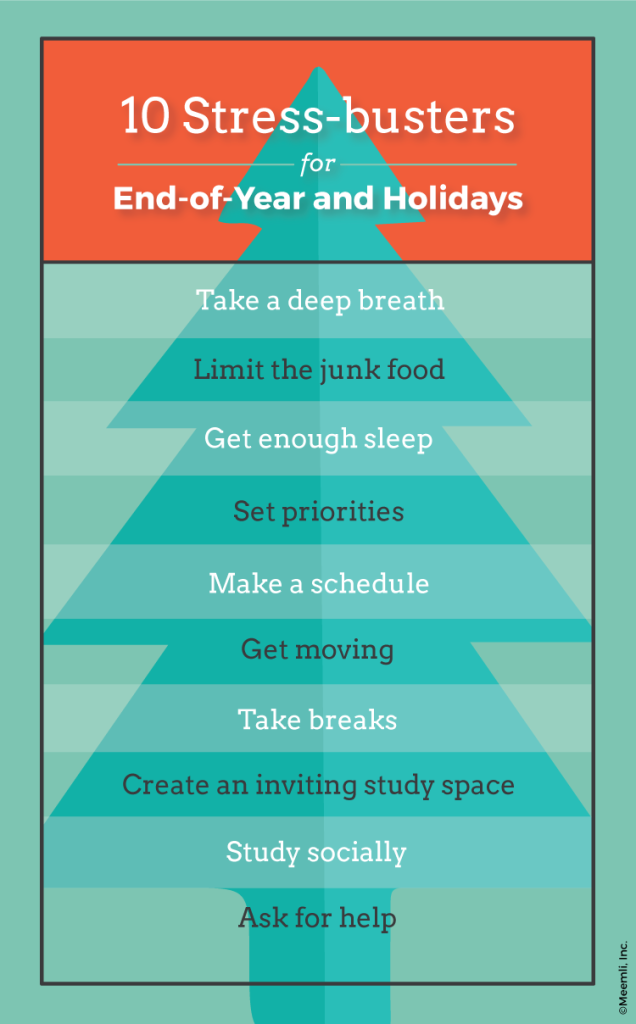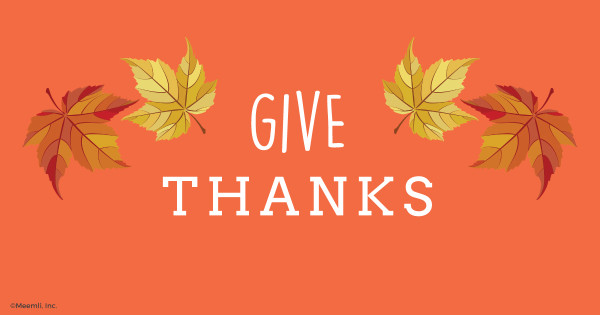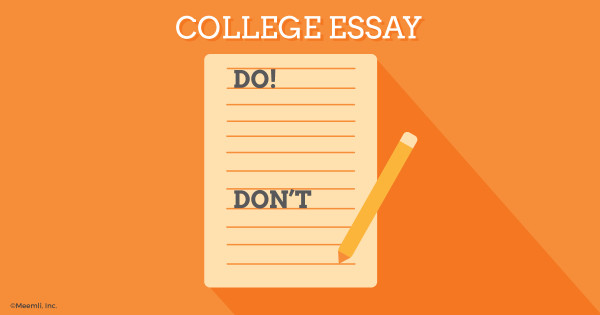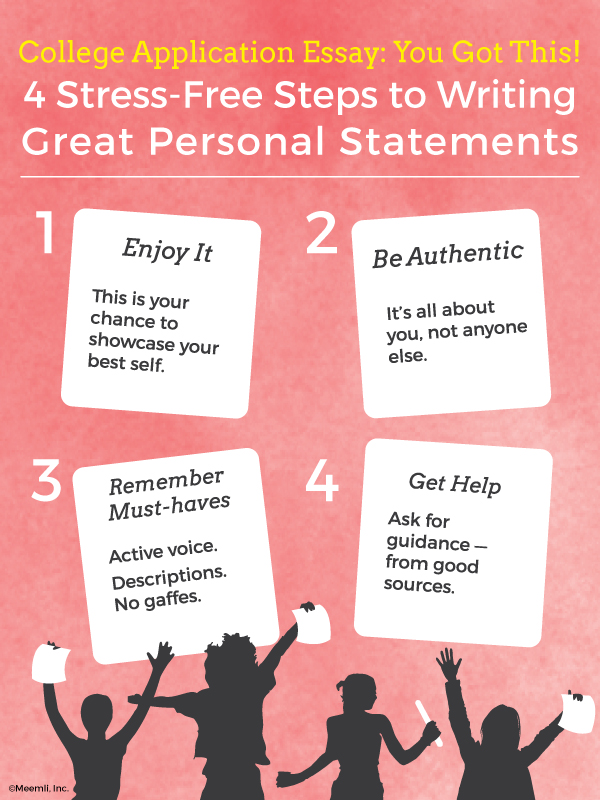The college essay (program) is fantastic! I think this will be so helpful for students as they prepare their college applications.
Where’s the rule that says New Year’s resolutions have to be make before or on New Year’s day? For the procrastinators everywhere we’ve updated this post for 2017 and are delighted to share again as it is about our favorite activity – learning!
Let’s start with the fact that you do not need to make a single New Year resolution – it is entirely optional. You can decide to make changes at any time of the year, of course. But there’s something to be said for joining the (very large) crowd that starts the new year with a burst of optimism and self-improvement fervor. It doesn’t hurt to know that there are tons of people on a similar mission who can give you tips and moral support when you falter.
You may be aiming for changes along the lines of getting healthier, working out more, eating better, getting more sleep, studying harder and getting your work done on time. All good goals. We at Meemli would like to suggest you make a conscious effort to put a resolution to learn something in the mix. It’s not just for when you’re at school, and not just for students. It’s for everyone, at any age and at any stage in their lives.
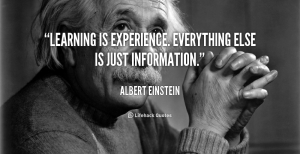 Why learning? Because learning is a part of being alive.
Why learning? Because learning is a part of being alive.
Learning is an activity that has a huge ripple effect in your life. It invigorates your brain, energizes your spirit, broadens your worldview, deepens your empathy, reduces boredom, boosts confidence, even makes you more interesting and fun. It is not just memorizing facts, it is understanding and experiencing our universe. Einstein knew what he was talking about.
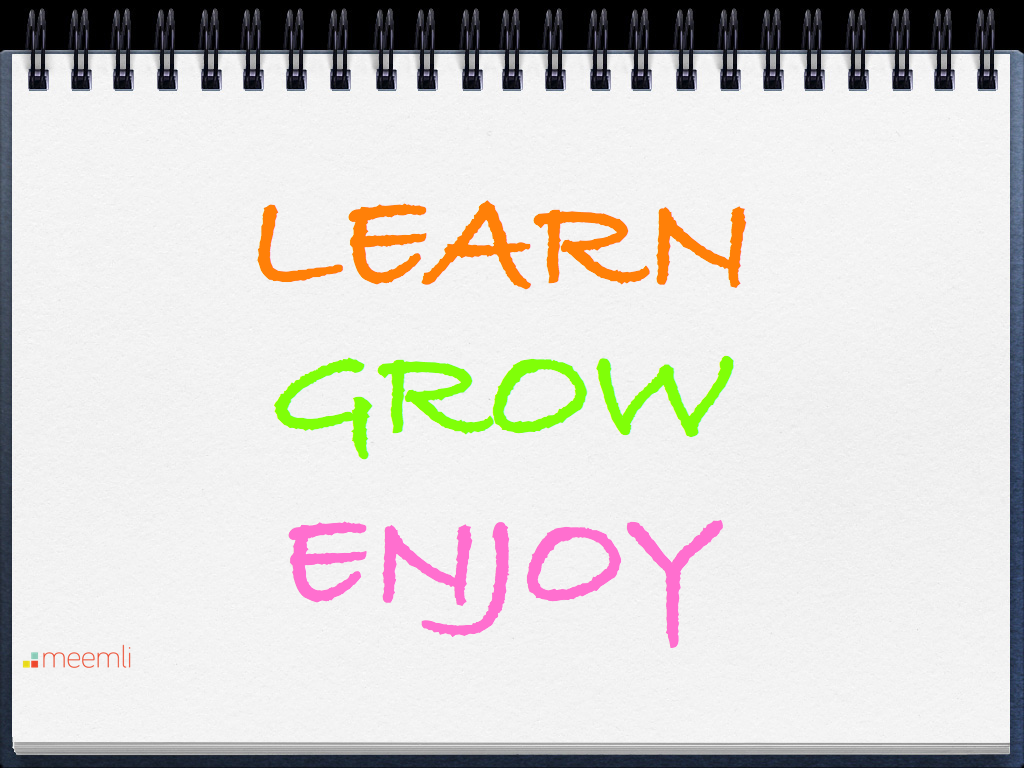
Need some help figuring out what to learn? Here are four approaches to get the ideas flowing!
Diversify
How much do we know of people who are different from us, of languages and cultures that are not our own, of towns and regions that we have not lived in? Very few of us get to visit a foreign country and live there for months at a time, which is undoubtedly a really good way to get to know how people live in other parts of the world. But, one of the amazing benefits of technology today is that the world is literally at our fingertips.
Pick a place that you’re really interested in (and hope to visit?) and resolve to learn more about it. How about learning a few phrases in the native language? Or reading books written by native authors, or watching a movie or YouTube music video in that language? Or trying to cook a favorite local dish? You can do all this and more, no passport needed.
Getting to know about other people, other cultures, gives us a better understanding for who they are and a better appreciation of who we are ourselves. If enough of us do this, world peace may not be an impossible dream after all.
Expand
Are you the person who feels you’ve found what you like and you’re not interested in trying anything else? Congratulations! It is great that you’ve found the awesome hobby, activity, interest that you like – and, presumably, are pretty good at too.
But here’s a radical idea: learn about something very different. What you already know and like will always be there for you, but maybe there’s something else that can grab your attention. Planning to be an art history major? Take a class on web design just to shake up your view of what looks pleasing. If rock music is your thing, maybe a foray into appreciating the classical kind would make rock all the more exciting.
Get out of your comfort zone and explore. At a minimum, expanding your horizons will make your comfort zone a little roomier!
Dig
Alright, now for the exact opposite of the previous one – dig deeper into something you already know a little bit and like a lot. A deep dive will show you how much you really like it.
Enjoy doodling? Take an art class and learn to draw for real. Love stargazing? Take a crack at astronomy and get to know the details of your night sky. Take a chance and immerse yourself in learning more about something you like. It may very well be the first step at becoming an expert at it. Being really knowledgeable about something you care about is cool.
Make
Many of us do not have the opportunity to make things as part of our jobs. And students who are past the felt-and-glue creations of kindergarten, have few chances to learn how to make things as options like woodworking are hard to come by in most schools.
So make it your goal to learn how to make something. Something tangible. Something you make with your hands, and tools, if needed. It could be knitting a sweater or throwing a clay pot or building a stool, or even a robot. Whatever it turns out to be, there’s something very satisfying about learning how to make something and seeing it take shape.
Looking for tips on what and how to learn in small doses? Check out these resources that can help you get you started.
Go ahead and make a learning resolution – we bet you won’t regret it. And let us know how it worked for you – we’ll cheer you on!
Blog
As 2015 winds down, there’s a flood of year-end reviews and best/worst lists fighting for your attention. . Every single news outlet has its own take on the year behind us. If information overload is the bane of the digital age, it gets amplified at the end of the year, as people tend to look back just as much as they look ahead.
But don’t worry, this is not another “year in review”! We at Meemli took a slightly different approach. A lot has happened in 2015, tragic, uplifting, worrisome, encouraging, but we don’t want to compile yet another list of events. Our focus is narrow, but targeted at something we can use: what education news item of 2015, big or small, gives us warm fuzzies as well as ideas we would like to keep in mind as we move into 2016?
Here are three stories (result of a totally subjective analysis!) with learning goals that we would like to remember and hope they will inform our educational efforts in 2016.
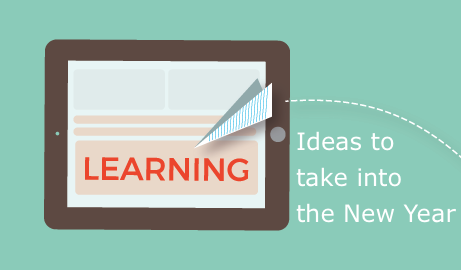
Less Emphasis on Testing
 Students and parents have long complained about the excessive focus on standardized tests, and many educators have agreed. But teachers and schools were unable to do much about it, except point out that testing was crowding out learning.
Students and parents have long complained about the excessive focus on standardized tests, and many educators have agreed. But teachers and schools were unable to do much about it, except point out that testing was crowding out learning.
In 2015, the administration got the message and proclaimed that there will be less emphasis on testing, to much acclaim from parents, students and educators. How it will be implemented is yet to be seen, but the goal is laudable and we’d like to see more learning time in the years to come.
We at Meemli build our courses with a bigger focus on learning than testing, and are happy to see it become more mainstream – it helps to reinforce our commitment!
Kids Should Have Play Time
 While there have been numerous studies on the benefits of play, especially for young children, play time has been steadily displaced by more study time, even for pre-school tots. The message that play is learning has either not been heard or has been abandoned due to the overemphasis on testing (see above), with many negative consequences.
While there have been numerous studies on the benefits of play, especially for young children, play time has been steadily displaced by more study time, even for pre-school tots. The message that play is learning has either not been heard or has been abandoned due to the overemphasis on testing (see above), with many negative consequences.
But, all is not lost. Parents, and educators, are inspired by articles like this one, which shows how Finland, which is at the top of the academic rankings, is exclusively focused on learning through play in the early years. Meemli believes that play helps in developing critical skills and we’re happy that playtime is making a comeback.
We love this set of photos of playgrounds of the world from The Atlantic – we think you would too!
Common Core Math Makes Sense
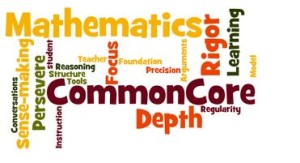 The Common Core provides a set of standards in math and English language arts for each grade level, with the expectation that students should have mastered those standards at the end of the school year. The Internet is buzzing with numerous confused parents, some teachers, and many in the general public, sharing stories of simple math problems, which they believe have been solved in an unnecessarily complicated way due to the Common Core.
The Common Core provides a set of standards in math and English language arts for each grade level, with the expectation that students should have mastered those standards at the end of the school year. The Internet is buzzing with numerous confused parents, some teachers, and many in the general public, sharing stories of simple math problems, which they believe have been solved in an unnecessarily complicated way due to the Common Core.
The traditional thinking is that it is important to know how to solve the problem, but Common Core methods guide the child into understanding the mechanics and concepts of math and learning why a solution works, which builds the child’s capacity to solve other, even different, problems. This approach resonates with us at Meemli as we believe understanding, not rote memorization, is crucial for 21st century challenges.
Watching this video from Vox is a good way for parents and others to understand how Common Core methods help students learn math in a thoughtful way. Check it out!
We hope you enjoyed these stories as much as we did. We look forward to more thoughtful, playful, learning success in 2016!
Blog
Yes, it’s that time of year when exams look large, and your teacher may suggest that you and your classmates form study groups to prepare for them. Sounds like a good idea, right? But, more often than not, studying in a group can be a test of its own.
Here are some of common challenges of study groups that you may run into – and ways to solve them so that you can get the most out of learning together and ace those tests!
Challenge 1: Study Time Becomes Hangout Time
To make sure your study group time doesn’t mysteriously transform itself into hangout time full of gossip, giggles, games and goodies, use this simple trick that most adults use at work: Start your study group session with an agenda.
You and your partners should agree on the agenda together. Start with what you want to cover, and from there, ask what else other people want to work on, and make a list. Voila, you just made an agenda!
If you’re already assigned set tasks, decide which ones are most important and the order you want to go over them.

Study group
Challenge 2: One Person Dominates
What if one of your group members is smart and talented, but just doesn’t know when to stop monopolizing the conversation? You can help your dominant friend work better with the others. More likely than not, everyone in the group will appreciate you for it.
A great strategy to employ is called “step up, step back.” With this, every person in the group gets a chance to “step up” and share their ideas, then “step back” to let others share. Introduce the idea of “step up, step back” to your group early on, so when someone in your group starts to dominate the conversation, all you have to do is give a little reminder/nudge.
Challenge 3: Things get delayed – a lot
To make the most of your time, divide up the tasks so that everyone works on something different. Then come together at points throughout your work to share what you’ve done. This way, you won’t all get stuck working on one issue while ignoring the other important tasks.
If all members must work together on the same topics, build a solid plan together. Similar to an agenda, your plan may go down to the detail of how long each person has for each task.
For both approaches, assign one person as “Time Keeper” who will watch the clock, check in on groups, give time reminders, and keep everyone on track – don’t forget to take turns as time keeper!
Challenge 4: You Feel You’re Lagging Behind
When you see that everyone else understands something that you’re having trouble with, you might feel like backing down. But, that’s the worst thing you could do for yourself and the group.
Believe it or not, people usually like being asked for help. It makes them feel useful. It also shows that you’re honest about what you need.
If you’re not sure where you need help yet, tell your group you’d like to just listen to them brainstorm or discuss for a while. As you listen, you’ll probably think of questions you didn’t know you had before. Use your questions to start friendly conversations and get real work done.
Challenge 5: You Feel You’re Way Ahead
You might think you already know everything about quadratic equations or how to write an awesome thesis statement. But trying to help someone else reach that understanding in a way that makes sense to them is not as easy as you might think.
One of the best ways to learn a topic is by explaining it to others.
By helping others understand what you know, you’ll solidify your own knowledge and also retain that information better and for longer. Added bonus, you’re doing a good deed!
Challenge 6: It’s Hard To Get Everyone Together
Finding a time and place to meet is often the hardest challenge of studying with a group. If this is your group’s problem, online meeting tools like Google Hangouts, Google Docs, and Skype can be lifesavers. (By the way, Meemli is a good place for shared learning too!!)
When we work/study in groups, there are some obvious benefits in learning. But, we also gain a whole set of other skills, like communication and time management. Working in groups effectively takes teamwork and planning. These are critical life skills that you’ll need in college, your future career and just life in general. Chances are you’ll grow and connect in ways that go beyond the books, and you’ll have some fun along the way.
Do you have any tips or advice about study groups that we left out? Tell us about them!
Blog
Ah December! Often dubbed the most wonderful time of year when families and friends gather for festive fun and celebrations. For students, however, the magic of the season may not fully kick in until exams are over and winter break has begun. More often, holiday activities seem to add a few more turns when you’re already tightly wound up with a long to-do list and important deadlines. You want to be a part of the fun and games of the season, but you still need to turn in reports and prep for finals. Stressed out? Don’t worry. Here are some simple ways to keep the holiday spirit while wrapping up the semester (and the gifts!) without melting down like a spent candle.
Take a deep breath.
Have a holiday dinner and a paper due back-to-back? Ready to burst with tension? Just breathe. Start by inhaling slowly and exhaling deeply. It’s not mumbo-jumbo, but a scientific fact that deep breathing triggers the body’s natural relaxation response. You’ll feel calmer immediately as you increase the supply of oxygen in your brain and stimulate your nervous system. Best of all, you can do it anytime, anywhere, without anyone noticing!
Limit the junk food.
Nutritious food nourishes the body and fuels the mind. When you eat well, you feel better, study smarter, and score higher. Healthy food can also lower stress and can keep you healthy . Of course, this is the holiday season, and sugary, fatty, calorie-heavy goodies can be found everywhere you turn – yum! Go ahead, have some. Just don’t overdo it.
Get enough sleep.
If you feel run down or tired, you’re really not going to do so well taking exams, turning in papers, or even playing video games with your cousins at a family gathering. Pulling all-nighters has been proven to do more harm than good. According to this article sleep deprivation and stress form a vicious cycle that’s hard to escape. Set a study schedule for your finals, but do put down the books so you can catch a solid eight hours of zzz’s.
Set priorities.
The holidays are a hectic time with high demands. Your friends are most likely in the same boat as you are. Take on what you absolutely must, and the rest can wait until you’re on vacation. Plan to spend time with your friends worry-free during winter break. Even with family engagements, it’s okay to decline if you’re under a tight deadline. Your family will understand that school should be priority #1.
Make a schedule.
End-of-year stress may seem overwhelming, but you’re already in the home stretch. Make a list of everything you have to do, and put your to-do list on your calendar, making sure you give yourself enough time. If you’re the kind of person who needs three drafts before you’re done with your essay, start writing earlier, not the night before it is due. And make sure to mark off completed items – a big, bold “X” would do the trick – it’ll make your feel good to see the list shrinking!
Get moving.
Exercise is a well-known stress buster. A short run or shooting a few hoops outside will invigorate you and help keep your blood flowing. Leash up the dog and stroll around the neighborhood to admire all the colorful lights and décor. The fresh air will do you good, even if you only go out for 20 minutes. Balance your schedule to make some room for active hobbies.
Take breaks.
Take timeouts that will help you recharge your emotional batteries. Make time to relax, listen to music, enjoy hobbies and holiday events. Just because you’re up against finals doesn’t mean you can’t take a breather to make a gift for a friend or bake cookies with your siblings. A healthy balance of fun activities can make a stressful schedule feel more manageable.
Create an inviting study space.
If you’re going to spend a significant amount of time in your study space, make sure that it’s inviting and comfortable. Sitting at your desk for several hours? Add some festive holiday décor to set a merrier mood and balance your work with play. As long as the space is quiet and you can concentrate, go ahead and have a little fun with it!
Study socially.
Getting together with friends to prep for a history test can be less stressful than doing it alone (unless group-study doesn’t work for you). You can gather at a friend’s home for some holiday cheer and then bust out the books. If you’re not able to meet in person, you can still “meet” online to work together. .
Ask for help.
If you’re feeling overwhelmed, reach out to others for some help! Your friends and classmates can help you study. Your family and teachers would be happy to help too. Ask teachers for a bit of one-on-one guidance. Have your parents quiz you on your course content, or just help you de-stress and unwind a little by listening to you.
These tips should help you keep the stress manageable and stay on track as you finish up the year. And bonus tip: these ideas work for everyone – not just students! Feel free to share with anyone you know who could use some tips on de-stressing. Do you have your own favorite stress-busters? We’d love to hear about them. Good luck and happy holidays!
Blog
Yes, we agree. Being grateful should be a daily habit, not just an annual, and thereby unfamiliar, activity. But THANKSGIVING DAY! Whatever the reason or history behind it, this is an awesome American holiday that gives us a chance to reflect and give thanks. And it doesn’t hurt that giving thanks has been proven to actually be good for you!
We at Meemli take this opportunity to thank everyone who has helped (and is helping) us in our mission to bring a great learning experience to students everywhere.
The Students
We loved having the opportunity to interact with so many different students and hear about how we helped them. “Helped me make my college essay stand out” – thanks Mayrali, great to hear that! And we also deeply appreciated all the suggestions we got. “Add more emojis” – we’re working on that Gabriel!
Seriously, we’re here to make a difference to the students and not so surprisingly, they make a difference to us! We’re deeply grateful to all students who have taken a chance on something new and different like Meemli.
The Parents
Of course, there are very supportive parents behind every student who’s trying out Meemli! We are thankful that these parents see the benefit of a rich, interactive online experience for their child and are not only willing, but often encourage, their children to participate in Meemli’s offerings. We love it when parents get engaged in their kids’ education in a positive way and do our little bit for them by sharing inspiring and informational posts for parents as often as we can.
The Teachers
Ah, the teachers! Where do we start? We’re grateful to all the teachers in the schools, especially the underserved, under-resourced ones, who work so hard to make a difference. We’re honored when we can join them and reduce their burden, even just a little bit. And the many other teachers who recommend Meemli to their students who need a little extra assistance and believe that Meemli can provide the quality and care they would like – thank you for your support!
We’re also deeply thankful to all the teachers who bring their skills, experience and knowledge to help Meemli develop top-notch curricula, and the ones who deliver our interactive online classes with such ease and responsiveness. We appreciate having them participate in this creative (and challenging) process and hope they enjoy it as much as we do!
The Team
Finally, Meemli would be nowhere without the efforts of our “small team with a big heart”.
Our CEO, Usha Sekar, says. “Our team is driven by our mission. Every single person cares deeply about education and is extremely enthusiastic about our vision. This makes it so much easier to work together and get things done, even with tight resources, tight deadlines and the inevitable challenges. Corinne, Susan, Lloyd, Noël, Shelley, Alison, Tracy, Mashalle, Marcos – you’re all high on the list of what I’m grateful for this Thanksgiving!”.
Technology is great and we’re ever so thankful for it (can’t forget we wouldn’t be in business without it!). But for Meemli, technology is just a tool, albeit an über-important one. At the end of the day, it is all about the people and we’re thankful to all those who welcome our work, and to all those who help us do our work successfully.
Wish you all a very Happy Thanksgiving!
Blog
(Please share this with the college-bound teen in your life!)
The time has come: You’re applying to college. Are you freaking out yet? If you are, you’re not alone. Applying to college can be a nerve-wracking process for countless high school seniors, especially one particular activity…writing the essay.
“How do I squeeze everything there is to know about me into 500 words?”
“My life is so boring! I don’t know what to write about.”
“If I don’t write a good essay, I won’t get in anywhere!”
We asked our awesome College Essay workshop development team to share their top tips for college essay success and they jumped right in.
Check Your Dos and Don’ts!
One thing they all agree on is to pay attention to the “dos and don’ts” when writing your college essay. Grammar and spelling are important, as are these other writing tips:
- Write in your own voice
- Use an appropriate tone
- Avoid slang
- Use descriptive details
- Be concise
You’ve probably seen these in many ‘how to’ posts on the college essay and that’s because these are fundamental – so make sure you pay attention to them!
Just Start Writing
Noël Young believes that often students get caught up in a spiral of trying to figure out what to write before they write it. She suggests they just write.
Don’t be self-conscious or worry about grammar or how it might sound; just get it all down on paper and then go back and revise it. Sometimes the biggest block is trying to follow all the rules and make it perfect right away. Instead, she suggests, “write what you feel without concern for rules so that you are free to get all of your ideas out. As you write, you may even discover something about yourself.”
Shelley Aschliman heartily concurs.
I agree that “just starting” is a great start! A lot of times essays can start out very patchy — like you think of one single paragraph to write or one little story you could tell. Start there. Even if you don’t even know where you’ll end up. One idea can often lead to another and then you can collect all those little stories to tell something big about yourself. Look for patterns or themes. What could the pattern show about you? (Kind of like using a picstich on Instagram…)
It’s All About You!
Raja Ashraf asserts that it is counter-productive to think about what others are going to write and the rest of the team heartily agrees. Trying to match your ideas to what other students might be writing or what you think the admissions committee wants to hear, will only prevent your true self from shining through. When you try to write something that isn’t real, it shows. Primary rule of personal statements: Be Authentic!
And also, show that you are mature and reflective and can share the real you. Since few teens have a lot of experience writing about themselves, they often resort to just repeating their activities and accomplishments. Alternately, they just write about their feelings, airing their grievances using the essay as therapy!
So, remember to write about how your activities and experiences shaped you, not just what they were, and what you learned from facing your challenges, not just how difficult they were to overcome. And, adds Susan Tu, ” we don’t want you to lie and embellish your experiences, but we also don’t want you to be overly modest. Recognize and be proud of your accomplishments!”
You Have A Story!
When reviewing applications at Stanford, Raja was most impressed by the students who wrote about something ordinary in a most extraordinary way. Let’s face it, most students do not have extraordinary experiences by the time they are 17 years old. And they shouldn’t feel bad about it. Instead, they should learn to look deeper and find the gold that they can share.
Susan tells this helpful story from her high-school counseling days. Jessica worked incredibly hard at school, then took care of her little brother while her mother worked, and did her homework (and got great grades) while her family slept. She didn’t think it was anything special, it was just something she did all the time, so she told Susan “I have nothing to write about!”. With a little prodding, Susan was able to unearth the truth behind Jessica’s daily life and show her that she had “extraordinary” circumstances and accomplishments.
You don’t need to have overcome disease, poverty or handicaps, or built companies and written best-sellers to have something compelling to write about. Shelley adds this reminder “It’s all about HOW you write it. A lot of people might have a similar story, but it’s how you write about it, what you think about it, what it means to you that makes it unique…and worth reading.”
When you’ve written your draft, think about “How do I come across? What kind of person will be reader think I am?”.
Raja and Susan both recommend that you have someone who doesn’t know you well read your essay and give you a very brief summary of what they got from it. That should help you figure out if you’ve got your message across.
(Don’t have someone who can help review your essay? Check out Meemli’s College Essay Expert Review option to get fast, detailed feedback on your essay from our awesome team!)
We’d like to wrap up with one more insight from Noël:
The most memorable essays I have read have always told me a story. I forget that I am reading an academic essay and feel like you are sitting next to me, telling me your story.
We hope your story is a great one and we wish you all the best in your journey to college!

